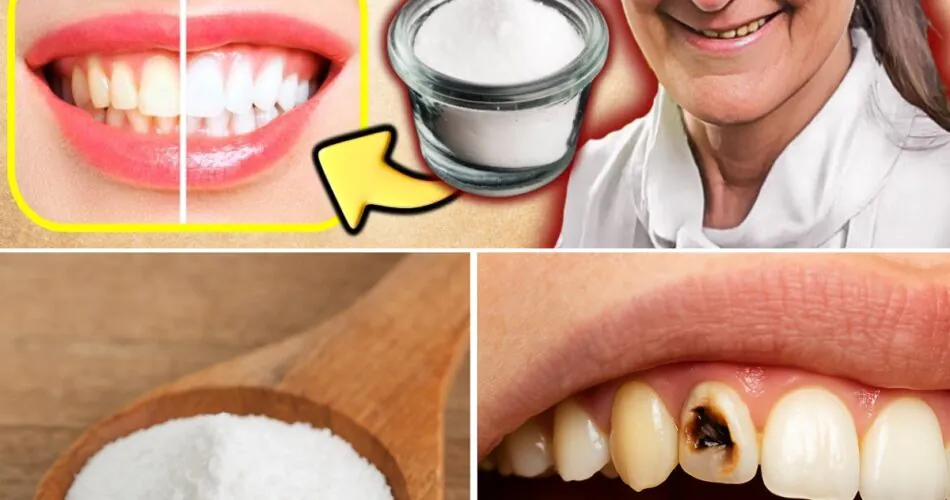Consult Your Dentist: If you have existing dental issues like cavities, gum disease, or fillings, check with your dentist before trying oil pulling or other coconut oil methods.
Avoid Overuse: Swishing for too long (over 20 minutes) or using excessive amounts may lead to jaw discomfort or upset stomach if swallowed accidentally.
Allergies: Though rare, some people may be allergic to coconut oil. Test a small amount on your skin first to rule out sensitivity.
Not a Replacement: Coconut oil cannot repair cavities or reverse tooth decay. Professional dental treatment is essential for addressing existing damage.
By keeping these tips in mind, you can safely explore coconut oil’s potential without unrealistic expectations.
Combining Coconut Oil with a Strong Dental Routine
To maximize your oral health, coconut oil should be one part of a broader strategy. Here’s how to build a solid dental care routine, as recommended by the American Dental Association (ADA):
Brush Twice Daily: Use a soft-bristled toothbrush and fluoride toothpaste for two minutes each time.
Floss Daily: Clean between teeth to remove plaque and food particles brushing can’t reach.
Visit Your Dentist: Schedule cleanings and checkups every six months to catch issues early.
Limit Sugary Foods: Reduce consumption of candies, sodas, and sticky snacks that feed cavity-causing bacteria.
Stay Hydrated: Drink water to rinse away debris and maintain saliva production, which protects enamel.
Adding coconut oil to this routine can enhance your efforts, but it’s the combination of habits that keeps your smile strong. Share this tip with a friend who loves natural health remedies!
Why Dental Health Matters for Your Overall Wellness
Maintaining good oral health isn’t just about a pretty smile—it’s linked to your whole-body wellness. According to the CDC, poor dental health can increase the risk of heart disease, diabetes complications, and even pregnancy issues. Cavities and gum disease can also lead to discomfort and costly treatments if left unchecked. By taking small steps like incorporating coconut oil, you’re investing in both your dental and overall health.
Plus, a healthy mouth boosts confidence. Whether it’s laughing with friends or acing a job interview, a bright smile can make all the difference. Comment below with your favorite dental care tip—what works for you?
Final Thoughts
Coconut oil isn’t a magic bullet, but it’s a promising, natural way to support your oral health when used correctly. From reducing harmful bacteria to soothing gums, this simple ingredient offers benefits that align with a holistic approach to wellness. By combining coconut oil with brushing, flossing, and regular dental visits, you can take proactive steps toward a healthier smile.
Explore more health tips on our site to keep your wellness journey going strong! And always remember to consult your dentist for personalized advice tailored to your needs.
*Disclaimer: This article is for informational purposes only and does not substitute professional medical advice. Consult your doctor or dentist before making health changes.
Consult Your Dentist: If you have existing dental issues like cavities, gum disease, or fillings, check with your dentist before trying oil pulling or other coconut oil methods.
Avoid Overuse: Swishing for too long (over 20 minutes) or using excessive amounts may lead to jaw discomfort or upset stomach if swallowed accidentally.
Allergies: Though rare, some people may be allergic to coconut oil. Test a small amount on your skin first to rule out sensitivity.
Not a Replacement: Coconut oil cannot repair cavities or reverse tooth decay. Professional dental treatment is essential for addressing existing damage.
By keeping these tips in mind, you can safely explore coconut oil’s potential without unrealistic expectations.
Combining Coconut Oil with a Strong Dental Routine
To maximize your oral health, coconut oil should be one part of a broader strategy. Here’s how to build a solid dental care routine, as recommended by the American Dental Association (ADA):
Brush Twice Daily: Use a soft-bristled toothbrush and fluoride toothpaste for two minutes each time.
Floss Daily: Clean between teeth to remove plaque and food particles brushing can’t reach.
Visit Your Dentist: Schedule cleanings and checkups every six months to catch issues early.
Limit Sugary Foods: Reduce consumption of candies, sodas, and sticky snacks that feed cavity-causing bacteria.
Stay Hydrated: Drink water to rinse away debris and maintain saliva production, which protects enamel.
Adding coconut oil to this routine can enhance your efforts, but it’s the combination of habits that keeps your smile strong. Share this tip with a friend who loves natural health remedies!
Why Dental Health Matters for Your Overall Wellness
Maintaining good oral health isn’t just about a pretty smile—it’s linked to your whole-body wellness. According to the CDC, poor dental health can increase the risk of heart disease, diabetes complications, and even pregnancy issues. Cavities and gum disease can also lead to discomfort and costly treatments if left unchecked. By taking small steps like incorporating coconut oil, you’re investing in both your dental and overall health.
Plus, a healthy mouth boosts confidence. Whether it’s laughing with friends or acing a job interview, a bright smile can make all the difference. Comment below with your favorite dental care tip—what works for you?
Final Thoughts
Coconut oil isn’t a magic bullet, but it’s a promising, natural way to support your oral health when used correctly. From reducing harmful bacteria to soothing gums, this simple ingredient offers benefits that align with a holistic approach to wellness. By combining coconut oil with brushing, flossing, and regular dental visits, you can take proactive steps toward a healthier smile.
Explore more health tips on our site to keep your wellness journey going strong! And always remember to consult your dentist for personalized advice tailored to your needs.
*Disclaimer: This article is for informational purposes only and does not substitute professional medical advice. Consult your doctor or dentist before making health changes.

